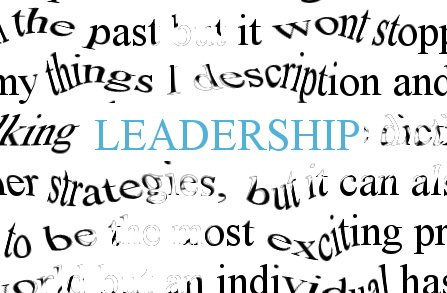In the next five minutes, you can take a big step toward becoming a better leader.
Start by imagining an organization where every member or employee is united by a shared vision. Each one understands their role and has what they need to do their job effectively, yet also has the freedom and confidence to bring their own creativity and initiative to bear. They feel their leader “has their back” and is looking out for their best interests. In return, they become energized to do all they can to help the team reach its goals.

That can be your organization. If not now, then in the future–if you know how to get there.
The principles we will discuss will apply if you are the CEO of a large company, an emerging leader, or a small business owner. They will work for people who help lead any organization or project, or even a family. We all have situations where we need or want to exert influence on others, and it is helpful to know how to do that effectively. We will address the material in a business context, but the same leadership qualities that work in business can help us in other areas as well.
In the last STEPS Journey Blog article, we saw that if employees enjoy being at work, feel their leaders care for them, and have hope for the future, they will be much more satisfied and productive.
But it is important to understand what it takes to have employees who feel that way. It requires leaders with practical knowledge, emotional resilience, and spiritual understanding that, together, will make them more effective. In turn, their teams can then become the best that they can be.
There are five key strengths which will help you become a more balanced and effective leader. And you don’t need to read dozens of motivational books to find out what they are.
Effective Leadership Strengths
You will be a better leader, if you develop the five areas below into personal strengths:
Effective leaders exercise wise judgment.
- Seek guidance from God and others and base their approach on principles.
- Balance decisiveness and thoughtfulness to make decisions for the long term.
“Rank does not convey privilege or give power. It imposes responsibility.” (Peter Drucker)
 Effective leaders have awareness and balance.
Effective leaders have awareness and balance.
- Leverage their personal strengths, and staff to address their weak areas, to create an effective team.
- Deal with both positive and negative situations well, building up others and admitting their own mistakes.
“Leaders with exceptional relationship building strength have the unique ability to create groups and organizations that are much greater than the sum of their parts.” (from Strengths Based Leadership by Tom Rath and Barry Conchie)
Effective leaders are good communicators.
- Share direction openly and work to acquire buy-in for the company vision.
- Earn the trust of employees by dealing with people fairly and consistently.
“The chances of employees being engaged at work when they do not trust the company’s leaders are just 1 in 12. In stark contrast, the chances of employees being engaged at work are better than 1 in 2 if they trust the organization’s leadership – a more than sixfold increase.” (Gallup Poll)
 Effective leaders can be process-oriented.
Effective leaders can be process-oriented.
- Plan roles and methods to enable success and make the best use of available resources.
- Set aside time for assessment and prayerful meditation on how the team can improve the business.
“To (be whole, real, and innovative) you must be able to clarify expectations, help others, build supportive networks, apply all your resources, manage boundaries intelligently, and weave disparate strands.” (from Leading the Life You Want by Stewart D. Friedman, author of Total Leadership)
Effective leaders are “servant leaders.”
- Place the needs of others ahead of their own personal interests.
- Teach, mentor, and spend time with people to help them grow.
“But among you it will be different. Whoever wants to be a leader among you must be your servant.” (Jesus)
The Leadership Challenge
Leaders are made, not born, and you can make yourself into a better leader.
To begin, rate yourself from 1 (Low) to 5 (High) in each of the five areas above. Then, every month, pick one you would like to improve, and write down something you will work on to get better in that area. This will help you establish ongoing habits to integrate these traits into your work style, which will then make you into a more effective leader.
But are these really the most important attributes of a good leader?
If you feel otherwise, or if you have ideas to share, take the Leadership Challenge!
Send me an email with any leadership characteristic you feel should make the Top 5 list, and point out which of the items above it should replace. Or, simply share your ideas and stories on effective leadership, including practical techniques or examples for how to put these principles into action.
I may use your input in a future STEPS Journey Blog article or other material, including a white paper on how to be effective in the workplace. And simply for taking the Leadership Challenge and sending me an email with your ideas, I’ll send you a free copy of that paper when it is complete.
Question: Are you willing to respond to the Leadership Challenge?
Action: Read Part 3 of the effective leadership article to complete the series.
Photo by University of Salford  Photo by Alexandre_Rangel
Photo by Alexandre_Rangel  Photo by tec_estromberg
Photo by tec_estromberg  Photo by photosteve101
Photo by photosteve101

